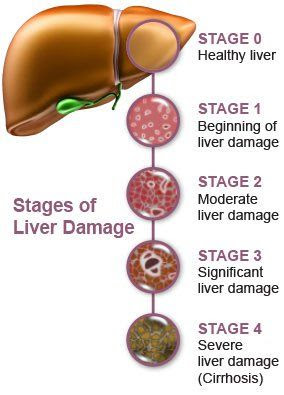Dr Arun Aggarwal describe Pediatric Acute Liver Failure
The estimated frequency of acute liver failure (ALF) in all age groups is approximately 17 cases per 100,000 populations per year, but the frequency in children is unknown.
Pediatric acute liver failure (PALF) is a complex, rapidly progressive clinical syndrome that is the final common pathway for many disparate conditions, some known and others yet to be identified. Management requires an individualized diagnostic approach to assess disease severity and trajectory, and to guide decisions about liver transplant.
PALF typically presents in a previously healthy patient with a nonspecific prodrome of variable duration with features that might include abdominal discomfort and malaise with or without fever. Jaundice, encephalopathy, and hepatomegaly are common.
PALF is diagnosed when an infant or child with no previous evidence of chronic liver disease presents with biochemical evidence of acute liver injury (elevated aminotransferase activity), coagulopathy not corrected by vitamin K (prothrombin time [PT] ≥15 or international normalized ratio [INR] ≥1.5), and encephalopathy. The encephalopathy is not required if the coagulopathy is severe (INR >2).
Every effort should be made to rapidly identify a cause of PALF if possible. A focused history and physical examination help to narrow the diagnostic possibilities. Careful coordination of laboratory and diagnostic tests is helpful to ensure that high priority tests are performed expeditiously, with the highest priorities given to potentially treatable disorders. Tests needed for supportive care and transplant decisions necessarily compete with those needed for diagnosing the cause of the PALF.
Laboratory testing to evaluate liver function and manage the acute liver failure include serum aspartate aminotransferase (AST); alanine aminotransferase (ALT); total and conjugated bilirubin, alkaline phosphatase; albumin; PT; PTT; ammonia; complete blood count; electrolytes; glucose; blood urea nitrogen (BUN); creatinine; amylase; lipase; and abdominal ultrasound.
Patients with PALF typically should initially be managed in a pediatric intensive care unit, which allows close monitoring, particularly fluid status and changes in mental status.
Fluid intake should be modestly restricted (90-95% of maintenance fluid requirement).
Hepatic encephalopathy (HE) develops in the majority of patients with PALF and is a relevant but inconsistent indicator of prognosis. Serial clinical evaluations of behavior, cognition, neurologic examination, and electroencephalogram (EEG) are important to assess the presence and progress of HE and possible onset of cerebral edema. Patients with HE should be treated initially with lactulose and rifaximin.
The prothrombin time (PT) and international normalization ratio (INR) reflect hepatic production of clotting factors and are used to assess the severity of liver injury in the setting of PALF. However, the PT/INR is not a good marker for the risk of bleeding in patients with PALF, because PALF reduces both procoagulant proteins and anticoagulant proteins.
Plasma transfusions or other procoagulation products are limited to patients with active bleeding or in anticipation of an invasive surgical procedure.
Hepatorenal syndrome is a renal complication associated with PALF. Unlike prerenalazotemia, the urine sodium typically is low, and there is no improvement with volume expansion. Renal replacement therapy with hemofiltration or dialysis may be necessary in some cases, but only liver transplant (LT) can reverse HRS.
Metabolic disturbances often seen in patients with PALF include hypoglycemia, hypokalemia hypophosphatemia, and acid-base disturbances. Management requires close monitoring and replacement. Hypoglycemia may require a continuous infusion of hypertonic glucose solution via a central venous catheter.
Patients with PALF are susceptible to bacterial infection and sepsis because of immune system dysfunction. Evidence of infection may be subtle, and fever may not be present. Thus, blood cultures should be obtained with any evidence of clinical deterioration, and antibiotics should be initiated if there is a clinical concern for sepsis.
Decisions about whether and when to perform a LT for a patient with PALF is difficult because of uncertainty regarding the patient's outcome without LT and the potential morbidity and mortality of the LT procedure. None of the scoring systems are adequate to direct decisions about LT.
Outcomes for patients with PALF vary substantially by diagnosis; acetaminophen-related PALF typically has the highest likelihood of survival without LT (94%) as compared with non-acetaminophen drug-induced PALF (41%) or indeterminant PALF (45%). Other important prognostic factors include age, timing of diagnosis for treatable disorders, and degree of encephalopathy.
If there is any suspicion of liver injury; patient should immediately be referred to a gastroenterologist/ hepatologist.


Hiv disease for the last 3 years and had pain hard to eat and cough are nightmares,especially the first year At this stage, the immune system is severely weakened, and the risk of contracting opportunistic infections is much greater. However, not everyone with HIV will go on to develop AIDS. The earlier you receive treatment, the better your outcome will be.I started taking ARV to avoid early death but I had faith in God that i would be healed someday.As a Hiv patent we are advise to be taking antiretroviral treatments to reduce our chance of transmitting the virus to others , few weeks ago i came on search on the internet if i could get any information on Hiv treatment with herbal medicine, on my search i saw a testimony of someone who has been healed from Hiv her name was Achima Abelard and other Herpes Virus patent Tasha Moore also giving testimony about this same man,Called Dr Itua Herbal Center.I was moved by the testimony and i contacted him by his Email.drituaherbalcenter@gmail.com OR info@drituaherbalcenter.com. We chatted and he send me a bottle of herbal medicine I drank it as he instructed me to.After drinking it he ask me to go for a test that how i ended my suffering life of Hiv patent,I'm cured and free of Arv Pills.I'm forever grateful to him Drituaherbalcenter.Here his contact Number +2348149277967...He assure me he can cure the following disease..Hiv,Cancer,Herpes Virus,Hpv,Pile,Weak Erection,Lyme Disease,Epilepsy,Glaucoma.,Brain Tumor,psoriasis, Cataracts,Macular degeneration,Cardiovascular disease,Chronic Diarrhea,Lung disease.Enlarged prostate,Osteoporosis.Alzheimer's disease,
ReplyDeleteDementia. ,Bladder Cancer,Autism,Colorectal Cancer,Breast Cancer,Kidney Cancer,Leukemia,Lung Cancer,Tay tach disease,Non Hodgkin Lymphoma,Skin Cancer,Lupus,Uterine Cancer,Prostate Cancer, Seizures, fibromyalgia ,ALS,Hepatitis,Copd,Parkinson disease.Genetic disease,Fibrodysplasia disease,Fibrodysplasia Ossificans Progressiva,Fluoroquinolone Toxicity Syndrome,Stroke,Hpv,Weak Erection,Liver/Kidney Inflammatory,Men/Woman infertility, bowel disease ,Huntington's disease ,Diabetes,Fibroid...